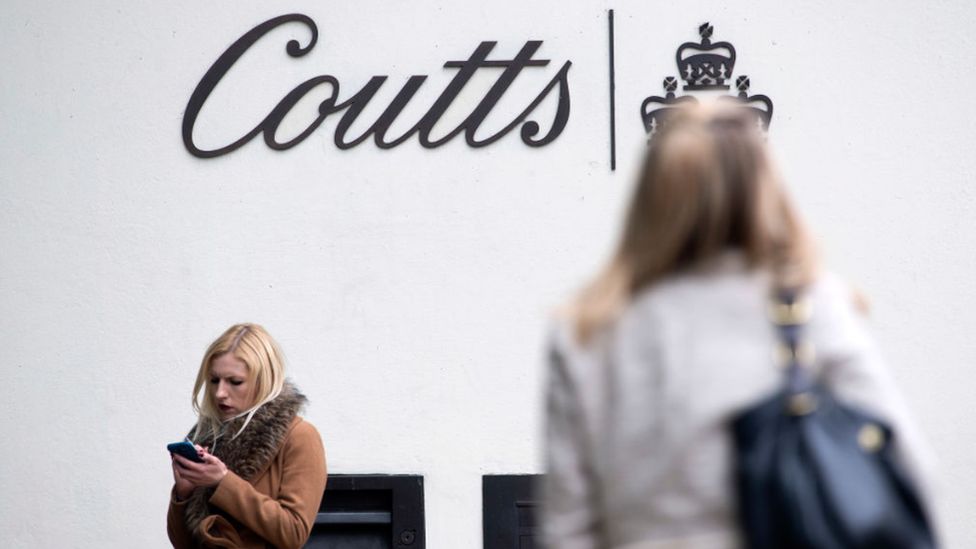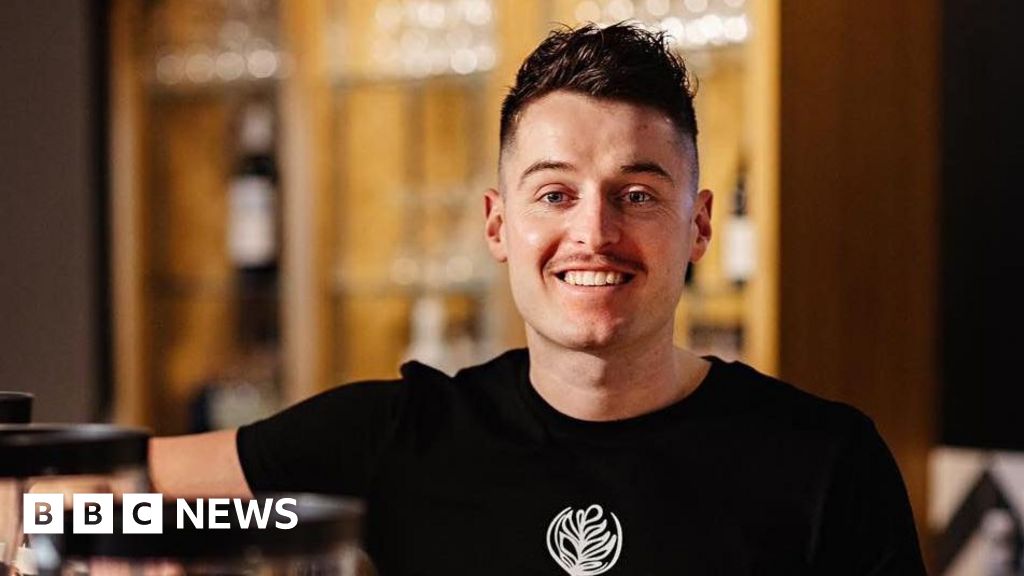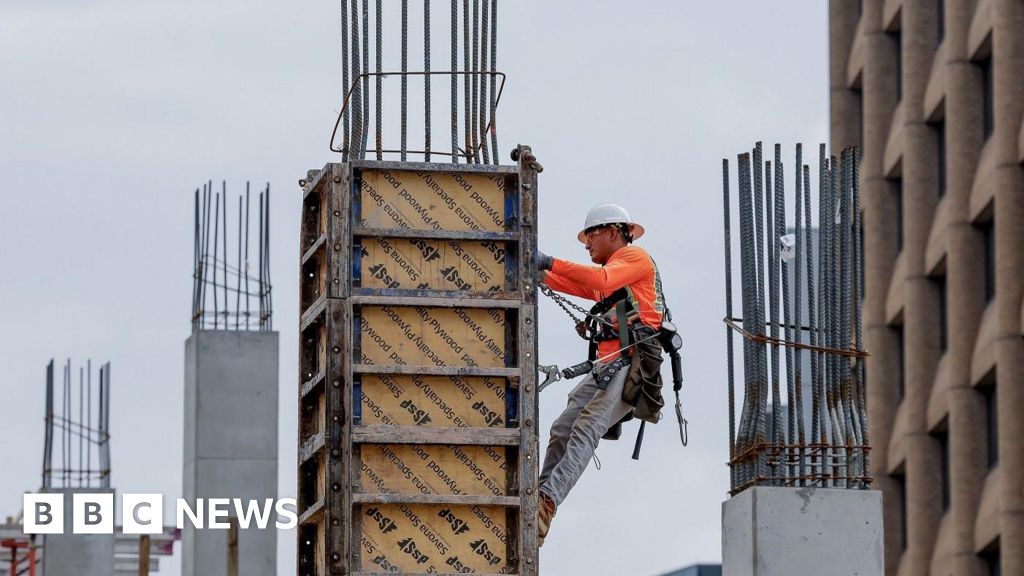ARTICLE AD BOX
 Image source, Getty Images
Image source, Getty Images
By Michael Race
Business reporter, BBC News
NatWest has said a review into closures of Coutts' customer accounts found "no evidence of discrimination" in relation to people's political views.
It looked at 84 account closures after NatWest admitted serious failings in its treatment of Nigel Farage.
The closure of the former UKIP leader's account sparked debate over whether banks acted against customers due to their political leanings.
The report found that other closures met industry standards.
Coutts, the prestigious private bank for the wealthy which is owned by NatWest, closed about 900 accounts over a two-year period, some of which included those of labelled politically exposed persons (PEPs)
Someone classed as a PEP generally presents a higher risk for financial institutions as they are deemed to be more exposed to potential involvement in bribery and corruption by virtue of their position and the influence they may hold.
As a result, banks are required to do extra due diligence on them.
The report, carried out independently by law firm Travers Smith, looked into 84 account closures as a sample and found decisions taken in shutting the accounts were appropriate and consistent with industry standards.
"There was no evidence of discrimination due to political views or affiliations, or any other protected characteristic," the report said.
However, Travers Smith said Coutts' could improve the way "exit decisions are communicated to customers and the clarity of communications".
The law firm said "in relation to the failure by Coutts to provide reasons for exits," the bank could have potentially being breach of regulatory rules, "including the obligation to treat customers fairly".
Mohammad Syed, chief executive of Coutts, said while there was no evidence of discrimination in closing accounts, "it is clear there are lessons to be learned".
"The experience of some of our customers fell short of what they should expect, and we apologise to them," he added.
Mr Syed said the bank would implement all of the report's recommendations.
NatWest Group, which is 39% owned by the taxpayer, was put in the spotlight earlier this year when Mr Farage, a prominent Brexiteer, said that Coutts planned to shut down his account and that he had not been given a reason.
The BBC reported that his account was being closed because he no longer met the wealth threshold for Coutts, citing a source familiar with the matter.
However, the politician later obtained a report from the bank which indicated his political views were also considered.
A report released in October by Travers Smith concluded the decision to close Mr Farage's Coutts account was "predominantly a commercial decision" and said the bank "considered its relationship with Mr Farage to be commercially unviable because it was significantly loss-making".
But it said other factors were considered, including Coutts' reputation with customers, staff and investors due to Mr Farage's public statements on issues such as the environment, race, gender and migration.
The fallout let to NatWest's chief executive, Dame Alison Rose, resigning after admitting she had made a mistake in speaking about Mr Farage's relationship with the bank.
She lost out on £7.6m in share awards and bonuses but walked away with £2.4m in pay.
The government is planning to change the law to make sure banks treat UK-based PEPs as lower risk than those from overseas.
It has also extended the notice period that banks must give customers before an account is closed, and forced them to give "clear and tailored" explanations for why they have chosen to do so, except in circumstances where it would be unlawful.
Mr Farage said on X, formerly known as Twitter, that he was "very pleased the law will change in relation to banking compliance for UK PEP".
"For too long, public figures and their families have suffered discrimination from the banks," he said.
"This is at least a start in unravelling the de-banking scandal that has hurt so many individuals and small businesses. Much more is needed."

 1 year ago
154
1 year ago
154








 English (US) ·
English (US) ·